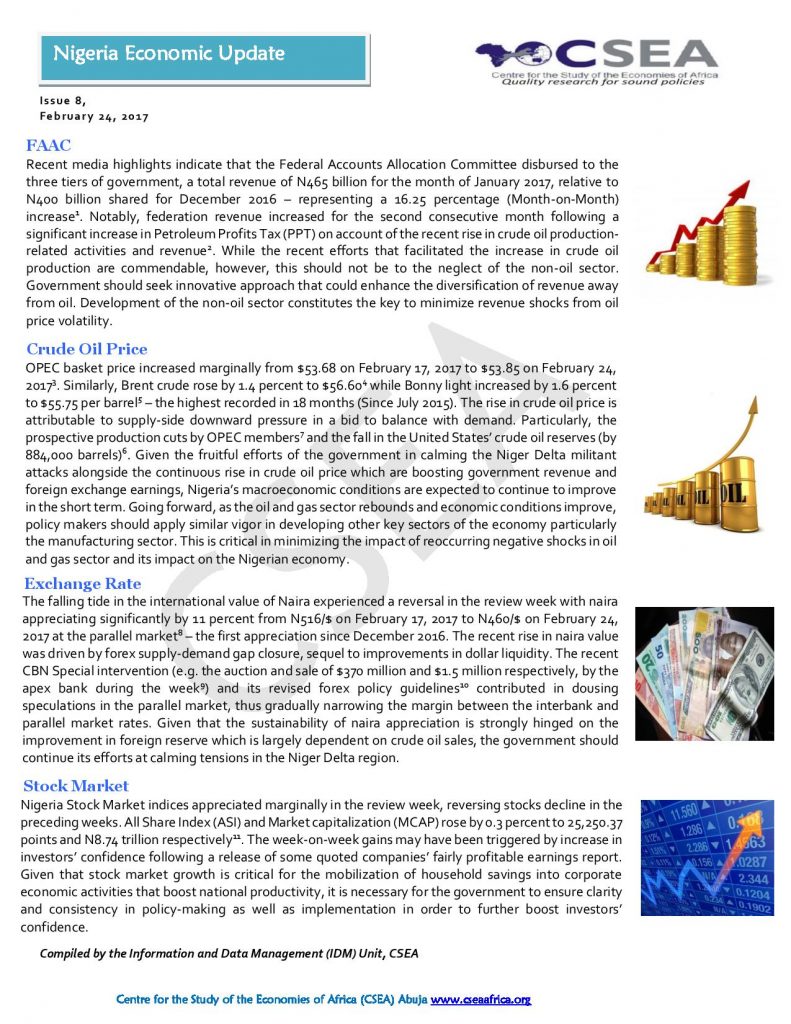Macroeconomic Report & Economic Updates

March 13, 2017
Nigeria Economic Update (Issue 8)
The falling tide in the international value
of Naira experienced a reversal in the review week with naira appreciating
significantly by 11 percent from N516/$ on February 17, 2017 to N460/$ on
February 24, 2017 at the parallel market the first appreciation
since December 2016. The recent rise in naira value was driven by forex
supply-demand gap closure, sequel to improvements in dollar liquidity. The
recent CBN Special intervention (e.g. the auction and sale of $370 million and
$1.5 million respectively, by the apex bank during the week) and its
revised forex policy guidelinescontributed in dousing speculations
in the parallel market, thus gradually narrowing the margin between the
interbank and parallel market rates. Given that the sustainability of naira
appreciation is strongly hinged on the improvement in foreign reserve which is
largely dependent on crude oil sales, the government should continue its
efforts at calming tensions in the Niger Delta region.
